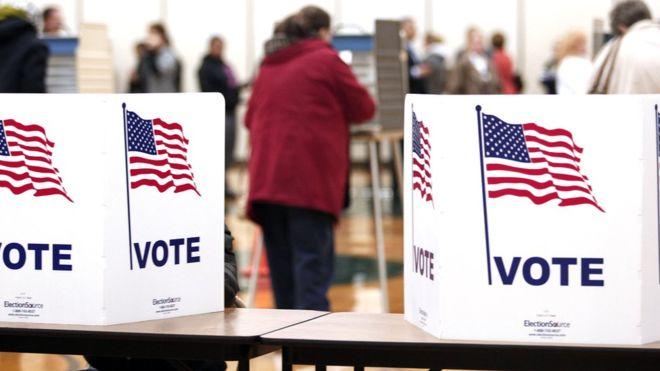Section Branding
Header Content
Judge Denies Request For Paper Ballots In Georgia's 2018 Elections
Primary Content
Georgia will not have to move from its direct-recording electronic voting machines for this November’s elections.
In a Monday night ruling, U.S. District Court Judge Amy Totenberg denied a preliminary injunction that would have required more than 2,600 voting precincts in 159 counties to switch to an optically-scanned paper ballot system for the Nov. 6 election.
Totenberg wrote the court’s concern after hearing the case is that the “massive scrambling… will seriously test the organizational capacity of the personnel handling the election, to the detriment of Georgia voters.”
Totenberg said there is a “tide of evidence” the state’s DRE machines are security risks, and that state elections officials “buried their heads in the sand” when it came to dealing with Georgia’s 16-year-old elections systems as well as the 2016 data breach at the Center for Election Systems at Kennesaw State University .
But she said the timing of the lawsuit filed by a group of Georgia voters and election security advocates did not justify the last-minute change. Totenberg called the decision a true 'Catch-22,' because the Sept. 12 hearing took place just over a month before early voting was set to begin Oct. 15.
Totenberg pointed to testimony from Fulton County Elections Director Richard Barron, who said having to transition to paper ballots within a month would close all but one early voting location for about 750,000 registered voters.
Secretary of State Brian Kemp, who is also the Republican nominee for Governor, said Monday morning before the ruling that he was confident that his office was prepared to oversee the election on the DRE system.
Kemp has also formed the Secure, Accessible & Fair Elections (SAFE) Commission to explore alternatives for Georgia’s elections infrastructure ahead of the 2020 presidential election.
One of the plaintiffs, the non-profit advocacy group Coalition for Good Governance, said in a Monday press release it planned to seek a ruling that would mandate paper ballots for the Dec. 10 runoff elections.
Totenberg closed her decision by saying a threat to any state’s election system “carries grave consequences beyond the results in any specific election, as it pierces citizens’ confidence in the electoral system and the value of voting.”


